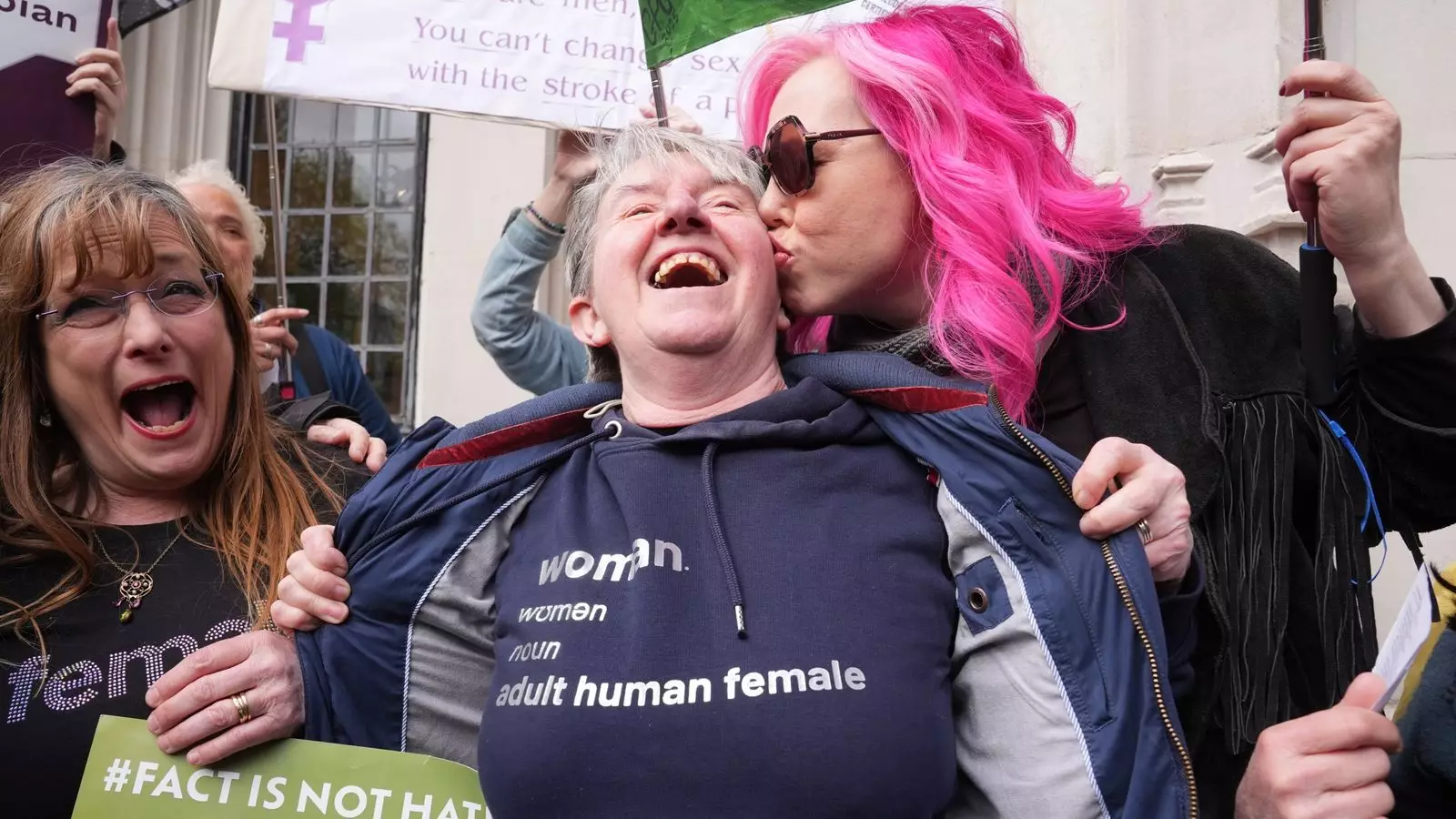In a deeply polarized nation where passion often overshadows reason, a recent ruling by a five-judge panel has reignited an already incendiary debate surrounding gender identity and biological sex. For years, this discussion has been mired in intense emotional currents, but the latest legal ruling has introduced a grim clarity that many find disconcerting. The judges’ decision, asserting that the legal definition of a woman is strictly tied to biological sex, notably challenges the validation and acceptance long sought by the transgender community. By declaring that holders of gender recognition certificates (GRC) do not qualify as women under the law, the implications ripple across societal norms that many believed were evolving—putting the rights of transgender individuals back in the crucible of societal scrutiny.
Contemplating the ramifications of this ruling, it’s imperative to consider its repercussions beyond the courtroom. In essence, this landmark decision threatens to strip away the foundational identities of countless trans individuals, relegating them to a status that echoes a bygone era of discrimination. It raises urgent questions: What does it mean for a trans woman to navigate a system that publicly invalidates her existence? How can society reconcile the principles of inclusion and equality with judgments that chisel identity into rigid legal frameworks?
A Duet of Progress and Regression
At its core, the ruling revolves around the intricate interplay of the Equality Act 2010 and the Gender Recognition Act 2004. The former permits certain exclusions for trans individuals, while the latter had initially instilled hope for broader recognition. The fact that this high court decision has reignited debates regarding gender identity is a glaring reflection of the societal challenges that remain deeply entrenched. While legal precedence may claim to restore clarity, it ultimately brings to light a retrospective view that seeks to constrict rather than expand human experience.
The ruling has triggered revelations that many gender rights activists find exasperating. For them, it appears to serve the interests of a rights-based framework steeped in traditionalism rather than one that embraces the complexities of modern identity. Campaign groups like For Women Scotland are celebrating a perceived legal victory, but in doing so, they underscore a troubling trend where women’s rights are pitted against trans rights, leading to concepts of womanhood that rely on antiquated definitions. This unfortunate dichotomy fosters divisiveness rather than unity, even as both groups struggle against broader systems of misogyny and discrimination.
The Political Fallouts and The Future of Gender Politics
As the dust settles post-ruling, political leaders express their varied reactions—from the Scottis government’s resigned acceptance to the UK Labour Party’s assurance of continued support for single-sex spaces. The political landscape surrounding gender identity is fraught with calculating maneuvers, especially as the SNP faces an election year. Will nuance give way to opportunism as parties tread carefully through this minefield? The emergence of leadership figures attempting to disentangle from the gender discussions of the past may signal a desperate effort to maintain relevance amid evolving public sentiment.
Former SNP First Minister Nicola Sturgeon championed more progressive gender reforms, only to see her legacy complicated by the stark realities presented by this court ruling. Current leaders like John Swinney find themselves caught in a quagmire, uncomfortably navigating the waters of gender identity while simultaneously assuaging both sides of an increasingly fractious dialogue. This tension hints at a broader struggle in which the rights of marginalized groups risk becoming collateral damage in the political arena.
In a society that should embrace diversity as strength, this ruling serves as a reminder of the challenges that lie ahead. The impending questions surrounding personal identity and societal acceptance demand a careful, compassionate approach—one that transcends mere legal definitions and embraces the complexities of existence. The journey ahead is fraught with uncertainty, but it is one that we must navigate with open hearts and open minds, lest we find ourselves entangled in a web of hostility and misunderstanding. The ongoing discourse surrounding gender is not just a legal battleground; it is deeply human, one in which every voice must be heard and respected, no matter how unpopular.


Leave a Reply